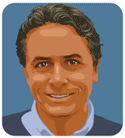The following is not yet another tirade against President Hugo Chávez. Instead, it is a warning: recent developments suggest that, in the case that Chávez does not manage to survive his illness, his successors could turn Venezuela into a narco-autocracy run by corrupt military officers who care more for money and riches than ideology or revolution. This would be of great concern for my country, Colombia.
When it was first announced that Chávez was suffering from cancer, conjectures started to arise as to who could succeed him in case he died, or he had to step aside. Two sides were identified. First, a group of high-ranking government officials, all civilians, who are very loyal to Chávez, apparently favored by the Cubans and strictly committed to the ideology of the revolution. The feisty Nicolás Maduro, minister of foreign affairs, and the left-wing intellectual and activist Elías Jaua, vice-president, were seen as the captains of such group. Initially, my own bet was that they would be picked by Chávez, with the blessing of the Castro brothers, given the likely potential that they would continue the revolution.
A second, darker alternative then started to emerge: a group of former military officers would come to power, some of them participants in the failed coup attempt of February 4, 1992.
Loyal to him at that time, and loyal to him in the years to come, these officers would fill the high ranks of government in the first phases of the “Bolivarian revolution”. Diosdado Cabello, a former Army officer, and now president of the legislative assembly, emerged as the leader.
The members of the second group had, in a way, fallen into disgrace in 2009, when it became public that some of them, or some of their relatives, had grown immensely rich during their time in government. A popular term had been coined by Venezuelans to refer to them: “boliburguesía” (bolibourgoisie, the bourgoisie of the Bolivarian Revolution). It was revealed, for example, that Diosdado Cabello lived in a fabulous mansion. Arné Chacón, the brother of Jesse Chacón (a former Army officer and government minister) turned out to own more than 50 race horses.
Extravagant wealth, however, should not be the only concern regarding this group: their alleged involvement in the drug business (at least some of them), and their ties with the Colombian FARC, should be a higher worry.
This concern materialized only very recently, with the appointment of General Henry Rangel Silva as minister of defense. For a long time, he has been named by U.S. agencies as a key element of the drug business in Venezuela. In 2008, the U.S. Treasury Department designated Rangel Silva due to his ties with the drug business and with the FARC, thereby freezing his assets. Later, after the killing of FARC commander Raúl Reyes, and the discovery of information in his computers, it was revealed that Rangel Silva was a close ally of the FARC, and had assisted them in businesses such as trying to acquire surface-to-air missiles.
To some observers, the appointment of Rangel Silva signals a turn in favor of the military sector for a possible succession. This seemed to be confirmed when Chávez announced that Maduro and Jaua will run for provincial governorships in the 2012 elections, which can be interpreted as removing them from the scene of national politics.
Every element seems to suggest that, in case the military sector finally manages to succeed Chávez, Venezuela could turn, from an experiment in socialist revolution, to a corrupt and authoritarian military regime, resembling more Noriega’s Panamá than Castro’s Cuba: a regime where money would speak louder than revolutionary booklets.
Colombia would have everything to fear from such an outcome, as drug barons would have a green light to operate through Venezuela, and the FARC could renew their pursuit of money and weapons.
* Andrés Mejía Vergnaud is a contributing blogger to AQ Online. He is a political consultant based in Bogotá and is the author of El destino trágico de Venezuela.





